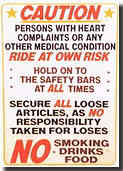Monday, July 13, 2009
Kevin Roose: The Unlikely Disciple (of bad religion)
Kevin Roose, The Unlikely Disciple: A Sinner's Semester at America's Holiest University; Grand Central Publishing; 2009.
"What would happen if a student at one of America’s most secular colleges spent a semester at Reverend Jerry Falwell’s “Bible Boot Camp” for young evangelicals?Three things attracted me to the book. First, I was curious about the culture of the school, mainly because it is so large & the vision of one man. Second, Roose's experience is something I can fantasize doing, & have done in other, smaller ways. Third, my nephew - who I like but hardly know - attended Liberty & graduated with a useful degree in business & sports management. Although a PK (pastor's kid), he was raised a moderately conservative United Methodist, attended public schools, & wasn't under parental pressure to turn Evangelical, much less associate himself with strict fundamentalism. I don't think the fundamentalism is what attracted him to Liberty. What specifically did draw him there was a mystery to me. Maybe the book could enlighten me.
"The Unlikely Disciple answers that question, following Brown University sophomore Kevin Roose during his semester as a new transfer student at Liberty University, the world’s largest evangelical Christian college."Publisher's blurb
 A well-adjusted Brown University sophomore, Roose seemed poorly-equipped for this project, his reasons for doing it not very convincing. He never had a church, attended Sunday school, or belonged to a Christian youth group. His parents are affluent, liberal, secularized Quakers. He didn't know enough to even fake an Evangelical attitude in a crowd of arm-waving Born Agains, something any mainline Methodist kid could do. Surely, he'll be found out within 24 hours in a Liberty men's dorm.
A well-adjusted Brown University sophomore, Roose seemed poorly-equipped for this project, his reasons for doing it not very convincing. He never had a church, attended Sunday school, or belonged to a Christian youth group. His parents are affluent, liberal, secularized Quakers. He didn't know enough to even fake an Evangelical attitude in a crowd of arm-waving Born Agains, something any mainline Methodist kid could do. Surely, he'll be found out within 24 hours in a Liberty men's dorm.But Kevin Roose is open, affable, adaptable, makes friends easily, qualities appreciated on any college campus & especially at conservative Christian schools, where abrasiveness, fashionable rebellion, & alienated behavior stick out like a scarecrow in a cornfield. So he reads, takes a crash course in Evangelicalspeak & manners with an Evangelical friend, rehearses interpersonal encounters &, most importantly, decides to be as honest as possible without completely blowing his cover as a recent arrival at the school with a desire for an earnest Life in Christ. Few people he meets at Liberty show curiosity about Roose's vague personal history & his unwillingness to reveal which Rhode Island school he had previously attended.
The male students (with prying resident advisors) on Roose's dorm floor are recognizable types, as college students & as Evangelicals, including the mildly rebellious guy from Jersey. One roommate is nasty & paranoid, nobody likes him. Most are friendly enough. They're all horny. They sound & act impossibly naive in this day & age. But they listen to mainstream rock. They know popular culture. A few sneakily gather to watch "R" rated movies ($50). They all want to be better Christians.
Their favorite insults are "queer," "gay," & "fag." Someday, in the real world, one of them might misspeak to a big, tough gay of the sort they don't even know exists, & receive a huge scare if not a broken nose. Because, as Roose notes, for all their obsession with the subject, they have terrible gaydars. When Roose invites a gay friend from Brown for a weekend, nobody gets it. There's much they don't get. Liberty must be a convenient place for a confused, guilt-ridden, conflicted young gay or lesbian Evangelical to hide for a few years, since it's easy enough to pretend sexual enthusiasm for the opposite sex when no one expects actual intimacy & the rules expressly forbid it. Only a brave few guys seek help from the spiritual advisor assigned to deal with same-sex attraction. The same advisor counsels habitual masturbators. Roose doesn't enlighten us on what women with those "problems" do. Except for a few women he gets to know personally, we don't learn much about the female Liberty experience. We do get the impression they have great presence on campus but not much power other than their psychic & pheromonal effect on celibate young men. It's a patriarchal culture. Some of Liberty' s male students imagine screwing & impregnating their wives at will. Some consider joinng the Quiverful movement, which advocates gigantic families of happy caucasian Christians. One wonders if they will discuss this with their fiances or just surprise them later. But it's all hypothetical at this stage.
Meeting Roose's new friends, it's important to remember that they didn't choose to attend Wheaton College (the most selective Evangelical school), Asbury College, Bethel University, Messiah College, George Fox University, Northwestern College, or Eastern Mennonite University about an hour up the Interstate. All those schools also have exclusively Christian faculty & strong codes of conduct, if not exactly "The Liberty Way." But they're "liberal" compared to Liberty. Some of them teach intelligent design, & Eastern Mennonite even offers a major in Peace Studies.
Roose tries to "date." Of course, hardly any college students "date" anymore, so it's rather quaint, with all the virgins afraid to even risk a kiss ($10 offense), expecting to find a soulmate/spouse based on a stroll around campus & a deep conversation at a Lynchburg restaurant. Students at Liberty want to meet & marry someone from the school, & Falwell encourages it. Get married, then be fruitful & multiply.
Many of the rules that seem so onerous now are just throwbacks to the in loco parentis authority colleges assumed into the Nineteen-Sixties, when courts overturned some of them in public schools, & others were gradually abandoned with changes in attitudes & lifestyles. Liberty keeps the dress codes, curfews, strict separation of sexes in dorms, required chapel attendance, etc. Other rules against dancing & public affection are old-time Baptist. Jerry Falwell wasn't only straight-laced, he was downright nostalgic. Liberty students know these rules going in, it's their choice. Breaking the rules incurs monetary fines. A student can run up hundreds of dollars in fines without coming close to dismissal. They think twice about bumming a ciggie in town ($25). The Liberty Way also has the effect of shifting & somewhat leveling the social playing field.
 Basic academics at Liberty are predictably awful. "History of Life" could use a Flintstones cartoon as a Young Earth teaching aid, & although taught as a science requirement, could easily be combined with the basic Old Testament course. There's all kinds of twisted logic & rationales to make facts fit allegory & metaphor. But I wouldn't call Liberty a "Bible Boot Camp." It's advanced training - in ignorance. Students already know the Bible when they arrive, Roose was starting almost from scratch. I'd like to know how they explain plate tectonics, which, if you want to believe God set everything in motion eons ago to prepare the world for humans, is very inspiring.
Basic academics at Liberty are predictably awful. "History of Life" could use a Flintstones cartoon as a Young Earth teaching aid, & although taught as a science requirement, could easily be combined with the basic Old Testament course. There's all kinds of twisted logic & rationales to make facts fit allegory & metaphor. But I wouldn't call Liberty a "Bible Boot Camp." It's advanced training - in ignorance. Students already know the Bible when they arrive, Roose was starting almost from scratch. I'd like to know how they explain plate tectonics, which, if you want to believe God set everything in motion eons ago to prepare the world for humans, is very inspiring.The other stuff: the constant praying & self-evaluation, enthusiastic church services & assemblies, the honesty & civility, the sense of community, are qualities of all Evangelical colleges, & apparent to a lesser degree on the campuses of many religious-affiliated schools without looking too hard for them. For certain types of adolescent Evangelicals, Liberty is in some ways almost a party school. Roose voluntarily spends Spring Break in Florida with a mission team, not drunk in Cancún on dad's credit card.
"Unlikely Disciple" loses suspense as Roose discovers conformity & participation overcome every obstacle. His clumsiness handling the exterior forms raises hardly any suspicions, even with those whose jobs are to look & listen for students marching to different drummers in their interior lives. He does what he must to fit in, as sincerely as he can. Roose is forced into a healthier, more disciplined lifestyle; he wasn't a true slacker before he arrived at Liberty. He becomes less guarded of his feelings. But he's more intent on finding common ground than in figuring out where he is in the broader American religious landscape, & why Liberty is what it is & attracts the students it does. I think it's attractive for many young people who simply loved Sunday School & Christian Summer Camp, love Jesus & belonging to something larger than themselves, & are comfortable with authority - adults telling them what to do & think. Those students risk the most under Liberty's fundamentalist indoctrination; they become narrow-minded or resistant enough to matriculate, or discontented enough to drop out. Roose's lack of religious experience prevents him from doing much comparing & contrasting. He didn't know young Christians capable of slicing & dicing fundamentalism without placing dinosaurs in Adam & Eve's backyard, ignoring social justice, or voting Republican. A friend of mine with 16 years of quality Catholic education could saute Liberty students in Augustine's Latin, too. Roose dives into Liberty having little familiarity with the alternatives; the depth & breadth of orthodox Christianity Liberty rejects. It's a weakness in the book. But the tale never stalls, & is often touching & funny.
"Unlikely Disciple" reaches a slam climax through incredibly lucky timing for Roose, made possible because he's too good a writer & too smart to be intimidated & awed by Jerry Falwell's distant religious authority & power. He has chutzpah. Ironically, Roose becomes a campus celebrity without exposing himself. What happens next is completely unexpected & mind-blowing.
***
Kevin Roose website
Liberty University
Council for Christian Colleges & Universities
Labels: blogging against theocracy, education, religion, what I'm reading
Comments:
<< Home
"If a nation expects to be ignorant and free, in a state of civilization, it expects what never was and never will be." Thomas Jefferson
well, THIS review is probably the first on your blog that might actually make me buy the book and read it! ha ha ha.
This review is so long you shouldn't have to read the book. & I edited it down from my notes. Wish it was worth posting on Amazon, but there's already 65 reviews & hardly anyone reads past the first 4. My view is that since these folks had the crap kicked out of them in the last election, we ought to take advantage of that, not say we're sorry, like Democrats seem to be doing.
Post a Comment
<< Home















